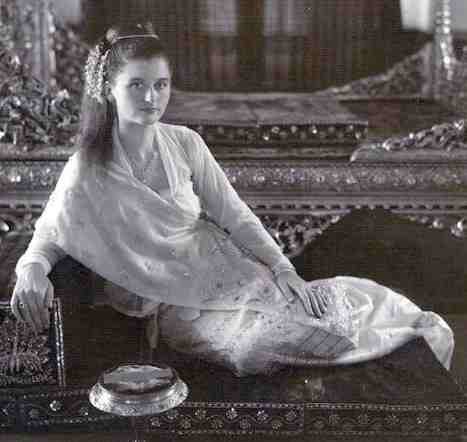 |
From Burmese princess to human rights activist, Inge Sargent has lived a life full of adventure, heartbreak and heroism.
When Inge Sargent (born Inge Eberhard) was just six years old, the Nazis invaded her home province of Karnten, Austria. The little girl watched in horror as soldiers took away neighbors, interrogated children , and even arrested her mother three times. Little did she know then that a similar horror would haunt her adult life and rob her of her husband.
After World War II, life was hard in Austria, and Sargent decided to study in the United States. In 1951 she won one of the first Austrian Fulbright Scholarships and enrolled at a women’s college in Colorado. At a party for international students, she met Sao Kya Seng, a Burmese engineering student from the Colorado School of Mines. “There was something very special about him,” Sargent recalls. “He was very kind and easy to talk to but he also had a certain bearing, a regal bearing.” The two quickly fell in love and were married at the home of a friend in 1953.
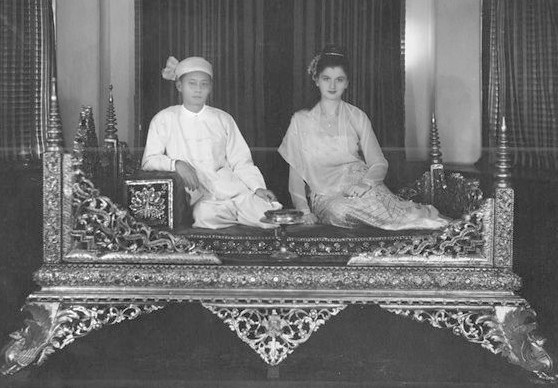 |
After the wedding the couple sailed to Burma to start their new life. When they arrived at the port of Rangoon, Sargent saw hundreds of people gathered on the docks carrying flowers, holding banners, and playing musical instruments. “Someone important must be arriving,” she remarked to her husband. It was then that he told her the truth. He was no ordinary Burmese citizen. He was, in fact, the prince of Hsipaw (pronounced SEE-paw), an autonomous state in Burma’s Shan Mountains.
Sargent still laughs when she recalls her response. “I wish you would have told me,” she said. “I’d have worn a different dress!” While Sargent was hurt that Sao had hidden his identity from her, she understood his reasons. “First, he wanted to live a normal student life. Then later, he wanted to be sure I loved him for who he was, not what he was.”
Sargent fell in love with her new land as quickly as she had her husband. She learned to speak Shan and Burmese and adopted the local dress and customs. Before long the once wary Hsipaw population had forgotten their princess was an “outsider” at all.
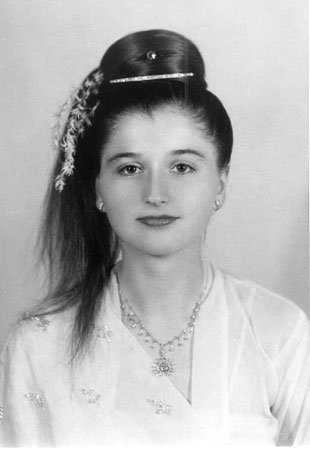 |
Sao and Sargent worked tirelessly to improve life in their primitive country. Although it greatly angered the Burmese military, Sao gave away his rice paddies to the farmers who worked them. He also introduced new farming techniques and taught his coutrymen to explore mineral and gem deposits. The princess, meanwhile, set up birthing clinics, taught villagers nutrition, and started a trilingual school.
After nine years as rulers, Sao and Sargent had two daughters, Mayari and Kennari, and a reputation as one of the most popular couples in all of Southeast Asia. Life, it seemed, was a fairy tale. But the dream was not to last.
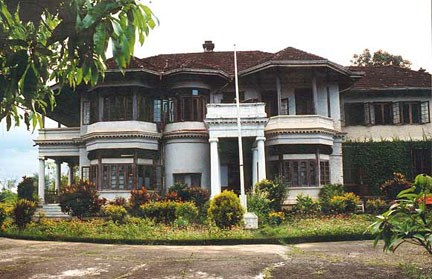 |
In 1962, the Burmese army staged a coup under the leadership of General Ne Win. Sao was arrested and imprisoned. Sargent and her daughters were placed under house arrest. For the next two years Sargent worked tirelessly to discover what had become of her husband, but eventually, she had to face the truth. “Sao himself told me, even before the Coup d’Etat, that if anything happened to him I should wait two years. If he did not come back, that meant he was not alive anymore.”
Sao also told her that she should return to her parents in Austria. With the help of an Austrian Ambassador, Sargent and her daughters made a daring escape, leaving behind everything but three suitcases.
After living with her parents for two years, Sargent decided to return to Colorado where she and Sao had once been so happy. She became a high-school German teacher and worked hard to help her daughters adjust to their new home. “The sudden departure, not knowing what happened to their father. It was a difficult adolescence for them.”
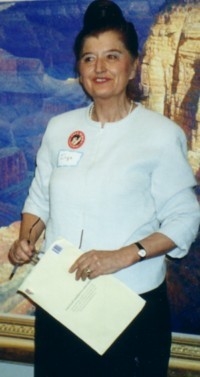 |
| Inge Sargent at the UN Association Ceremony in 2000. |
In 1968, Sargent met and married Howard, her current husband, who encouraged her to write her biography. Twilight over Burma was published in 1994. Sargent says writing it was a cathartic experience. “Before I wrote the book I used to have nightmares of running with my two little girls while bullets flew past us. But since finishing the book, the nightmares have ended.”
Sargent donates all of the proceeds from her book to Burmese refugees in neighboring countries. She and her husband have also founded a non-profit organization called Burma Lifeline to provide food, water, and medical care to those on the run from General Ne Win’s regime. "There are several million refugees hiding in Thailand and Bangladesh," Sargent says. "And another five million or so are displaced inside Burma, which is now called Myanmar by the military regime."
In 2000, Sargent was awarded the United Nations Association International Human Rights Award for her efforts. But it is remembrance, not recognition that drives her. “I am connected to the Shan people of Burma. I’ve lived with them and lost my heart there. How can I not help them? Someone has to help them.”
Page created on 5/6/2005 10:45:24 AM
Last edited 1/3/2019 11:04:48 PM
